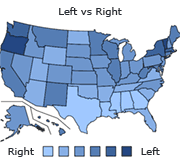History Quiz yes
Why had blacks in the South of the USA made only limited progress between 1945 and 1955? Progress between 1945 and 1955 was limited for a number of reasons ranging from the inactivity of federal support, political opposition and repression, the fragmented nature of civil rights protest and the limitations of supreme court action. Firstly between 1945 and 1955 there was only limited support for the civil rights movement from Federal Government. President Truman largely made symbolic gestures such as appointing more blacks to positions in his government and creating inept bodies such as the FEPC. When Truman finished his term of office President Eisenhower continued this inactivity and à with such actions as creating Civil Rights Acts that promised much and delivered little. For example the Civil Rights Act of 1960 managed to add only 3% more black voters onto the electoral register despite being billed as an attempt to end political discrimination. Therefore the lack of useful action to help the civil rights movement from Federal Government in the years 1945-1955 demonstrates a key reason explaining why only limited progress was made. Secondly interference from segregationalist politicians and white supremacists further slowed black progress. In the deep South of America, by far the majority of state officials were vehemently segregationalist.
Firstly the simple plurality system used for parliamentary elections in the UK is vastly disproportional. For example in the 2005 general election the Labour Party won only 35% of the popular vote, yet due to concentration of support managed to obtain 55% of the seats in the House of Commons. This disproportional allocation of seats to votes is a significant flaw in British Democracy that is regularly criticized by minority parties with no concentration of support as it prevents them from entering parliament. The House of Lords still maintains significant law making powers and contains no elected members. Appointed members of the House of Lords can claim some legitimacy as they have been chosen by elected representatives of each political party. However this small degree of legitimacy is being eroded by revelations that parties have essentially sold peerages for party funding. Additionally around 80 hereditary peers remain in the house. Notwithstanding the fact that no members of the house are elected, it is a serious flaw in UK democracy that people are able to become peers of the UK’s second chamber because of wealth or hereditary.
Are you ready for...
Our "When Will I Die" Quiz?

